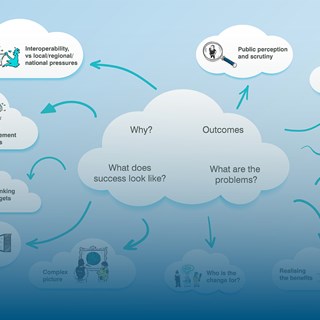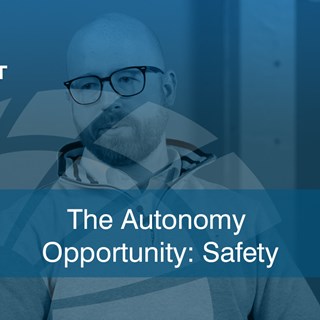
6 December 2023
Our technical experts were delighted to take part in the recent two-day technical conference, Engine as a Weapon, which explored the opportunities and challenges of manufacturing, integrating and supporting complex systems and equipment at the forefront of naval technology.
We delivered industry-leading talks on a range of topics, from Autonomous Vessels to Digital Twin in Ship Design. These presentations are now available to download as papers:
The Impact of Dual Energy Saving Technologies on a Frigate’s Duties
Overview: This paper presents the outputs of a study which explored the benefits of operating with two different types of energy saving technology (EST) on BMT’s Venator 110m frigate.
Author: John Buckingham
Changing Definitions of Digital Twin in Ship Design
Overview: This paper explores the different roles, definitions and purposes of a digital twin in an attempt to demystify the technology. By exploring different case studies and applications can we once and for all define a digital twin?
Author: Jake Rigby
Autonomous Surface Vessels and Design Availability
Overview: This paper discusses how a future proliferation of Autonomous Surface Vessels (ASVs) demands a different philosophy to designing for availability without the benefit of a crew continuously on hand as in the conventional sense. This paper makes the case for an even more focused and systematic treatment of availability directed at the lack of onboard support than previously considered, and a potential way forward.
Authors: Ian Savage and Eshan Rajabally
Fire Protection for Naval Autonomous Vessels
Overview:This paper considers the nuances of fire protection requirements and functional solutions for the new generation of Naval Autonomous Surface Vessels (NASV).
Authors: Ian Savage and James Glockling
Naval Autonomous Surface Vehicle Recoverability
Overview: This paper aims to provide the goals and functional objectives against the 7 pillars of recoverability for NASVs, which provides the handrail for designs to achieve a recoverability solution appropriate for its size, cost, importance, and environment in which it operates, but always against a known baseline.
Authors: Ian Savage and Simon Bartlett
Fill in the form below to request a copy of the papers

N/A
Delve into the top 10 challenges and interdependencies involved in selecting and adopting from the plethora of technological developments, and then embedding multiple new technologies in frontline UK policing, highlighting the multifaceted nature of this undertaking.

N/A
Get ready to dive deep into maritime autonomy as we bring you technical experts, insightful opinions, and unmissable discussions.

Jake Rigby
We explore the core elements of the support framework required to ensure Persistent Operational Deployable Systems (PODS) can thrive.

N/A
BMT papers which explore the latest insights on the future of maritime autonomy and the safety of autonomous vessels.